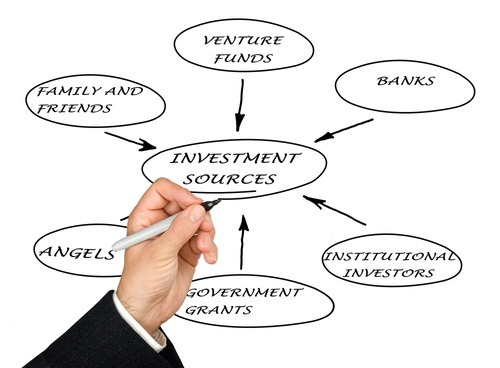Private investors currently find themselves squeezed between zero (or even negative) interest rates on money market or bond holdings, increasingly volatile and liquidity-driven stock market evaluations, and high real estate prices. They are therefore finding it increasingly challenging to come up with attractive investment opportunities.
In this financial climate, many are wary about how they invest. However, there might be an interesting way to diversify one’s portfolio, for the investor who is prepared to incur a higher risk, but who also wants to have some fun by getting actively involved in managing investments and interacting with entrepreneurs: angel investing.

What is Angel Investing?
The term "angel" originally comes from Broadway theatre, where it was used to describe wealthy individuals who provided money for theatrical productions that would otherwise have had to shut down.
The traditional definition of an angel investor is “an affluent individual who provides capital for a business start-up, usually in exchange for convertible debt or ownership equity”.
Angel investors are often retired entrepreneurs or executives, who may be interested in angel investing for reasons beyond pure financial returns. These might include wanting to stay in touch with current developments in a particular business area, mentoring a younger generation of entrepreneurs, and making use of their experience. Angel investors will often also provide valuable hands-on management advice and important contacts.
In most cases, angel investors are focused on helping startups take their first steps, rather than the maximum possible profit they may get from the business. Essentially, angel investors are the opposite of venture capitalists.
How does it work?
An angel investor typically provides capital to a startup after initial funding from the founders themselves, families and friends has been used up or is insufficient to ensure ongoing operation of the company. Angel investors normally only invest in startups that have gone through a highly selective screening and due diligence process where they are assessed on multiple criteria for the validity of their business model. Out of about 1000 investment opportunities that apply for funding, only 15 to 20 might receive investment.
The amount invested by an angel investor usually varies from CHF 100k to 1.5 million in an initial round of investment. In order to limit the risks, angel investors often do not cover more than 25 % of the total financing needs, with the remaining 75 % coming from other angel investors or other means. The initial funding, in most cases, is then supported by follow-on rounds of investments at a later stage.
Once the capital is invested in the startup, the angel investor needs to be patient and aware of the fact that his capital will be tied up for years, can’t be pulled out and will not generate a cash return until the investment is exited. Exit strategies can take on different forms, so they need to be agreed on with the entrepreneur and should be very well executed. Only after a successfully completed exit will the angel investor get a cash return, and know how successful his investment has been. The average time to exit an investment varies widely, and can be anywhere from 2.5 years to up to 7 years.
Is angel investing only for rich investors?
Angel investing has attracted various types of investors ranging from institutional investors to business angel clubs.
This practice used to be limited to wealthy individuals. For example, in the US, individual angel investors need to meet the Securities Exchange Commission’s (SEC) standards for accredited investors. This means a minimum net worth of $1 million and an annual income of $200,000.
In the meantime, however, an increasing number of angel investors around the world invest on-line through equity crowdfunding, and organize themselves into ‘angel groups’ or ‘angel networks’ in order to share research and pool capital, as well as experience and advice, to their portfolio companies. In other words, angel investing is becoming more common and accessible to small investors as well. Furthermore, it has never been easier to meet great start-ups that have been thoroughly screened by investors who know the individual start-up’s industry and can provide expert advice, so even small investors with little experience but a lot of interest in start-ups can participate. It should be noted, however, that potential investors need to bear in mind that angel investing remains a high risk investment and should only represent a small part of an investor’s assets.
In the next part of this article, we will describe in more detail the different ways of participating in angel investing in Switzerland.
Sources:
https://en.wikipedia.org/wiki/Angel_investor
https://en.wikipedia.org/wiki/Accredited_investor
http://www.investopedia.com/terms/a/angelinvestor.asp
https://www.entrepreneur.com/article/52742
Photo credit: Mopic via Shutterstock
Enregistrer






Dear Stefan
I have just come across your above article about Angel investment which I will refer to in my EMBA dissertation - thank you.
Maybe you have a brief time-slot to discuss this topic in more depth?
Please also refer to my LinkedIn invitation.
Best, Bruno